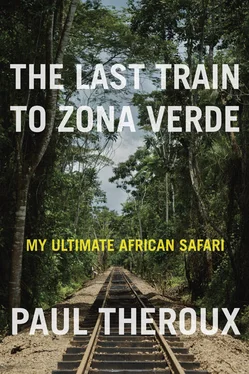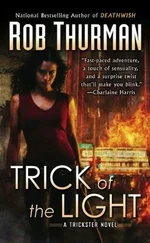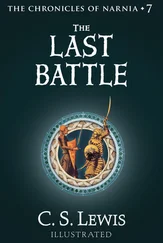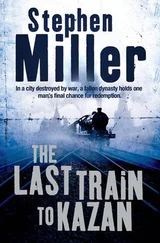My hesitation was much more of a reversal than he knew. I was the man bewitched by the Chattanooga Choo Choo and the Patagonian Express and the Trans-Siberian, who had written, “Ever since childhood, I have seldom heard a train go by and not wished I was on it” — yet here was the brand-new Chinese-made train, lit up, on a recently restored line that could bear me in relative comfort east on a safari for 265 miles into zona verde — the green zone of Angola’s bush, the site of the last few wild animals in the country and of the sort of village life that always seemed a consolation. My lifelong idea of supreme happiness was being a passenger on a train rattling through the night to a distant place unknown to me.
But I thought, Not this time . I had no desire to board the train. And, thinking it, I was joyous — a great relief to conclude that this was the end of my trip. No more . The same joy I had always felt on setting off on a long trip now visited me on this decision not to go any farther. Not here, not now .
It was then that Kalunga had taken me to the desperate musseque beyond Viana and, frowning at the loud music and squinting at the scuffling crowds and the shacks — the poverty, the twitching excitement bordering on frenzy, the hopelessness of it — had uttered the devastating pronouncement that stayed with me: “This is what the world will look like when it ends.”
Struck by this doomsday vision, and saddened by his own doom so soon after that, I was left to ponder my next move. I knew that Malanje, the last stop on the railway line, was a dead end: no road led north from there. I’d have to return to hateful Luanda and take the coast road to a place called N’zeto. From the map I could not discern any onward road. I probably could not travel north at all except by air, and even if I spent weeks struggling by back roads to the border, my prize would be the Congolese river town of Matadi, a well-known hellhole. Then I would board a bus to Kinshasa, a rotting city much like Luanda — and rotting for the same reasons: a corrupt government rich on diamonds, gold, and mineral wealth, and on rarefied techniques of embezzlement and trade mispricing.
Rigged elections at this time had provoked rioting in Kinshasa’s streets and a fierce police presence. After that, Brazzaville, Pointe-Noire, and a transit of the squalid cities of the coast, because the Congolese interior was largely made up of no-go areas. Of course, I could put my head down and travel farther, but I knew what I would find: decaying cities, hungry crowds, predatory youths, and people abandoned by their governments, people who saw every foreigner as someone they could hit up for money, since it was apparent that only foreigners seemed to care about the welfare of Africans.
Because I was traveling overland, what lay before me was a grubby and unrewarding itinerary of West African cities — that is, West African shantytowns. No poverty on earth could match the poverty in an African shantytown, and no other place was so bereft of hope. In an African village, poverty was a relative term. I knew that from the humble villages I’d seen in Botswana and Namibia and the Angolan interior, places where people survived, as they always had, in a subsistence economy, growing what they needed, bartering extra food for what they couldn’t grow or buy, living in mud huts, using a slit-trench latrine, practicing slash-and-burn agriculture. It was a life of fetching and carrying and making do: walking an hour for water, washing in the river, scavenging for firewood, killing the occasional chicken, living hand to mouth — not flourishing but eking out an existence in meagerly productive routines.
This hard life in a rural area could not compare with the dog’s life in a shantytown, where gardening was impossible, water was scarce, and fuel — firewood or charcoal — usually unavailable; where there was no muddling through except by a menial job, casual labor, or whoring, or handouts, or crime. But, this being Angola, it was the rich, and only the rich, who appeared to me sluttish and criminal. In the bush there existed the possibility of renewal: a new season, a new crop, a new water source. This extreme rural poverty could be relieved by modes of survival, many of them traditional strategies. But in a city slum, survival was not guaranteed, traditions did not apply, and a cash economy made people peculiarly deprived and rapacious.
The thieving was a tendency that some Marxist economists forgave (Eric Hobsbawm for one, in his book Bandits ), by explaining it as the reflex of wronged or oppressed peasants practicing “social banditry,” the politicized poor redressing inequality by stealing from the rich. My experience of credit card fraud in Namibia might have been construed as the act of a social bandit using high technology instead of a machete, but that did not make me feel any better. It left me nearly broke and somewhat demoralized.
Yet the loss of money was nothing compared to the loss of friends. Three people I had gotten to know pretty well, three men I had admired in their passion for Africa, had died — young Nathan violently crushed by an elephant, Kalunga way before his time from a heart attack, and Rui da Câmara, whose skull had been smashed by an intruder. The deaths of others in a time and a landscape you yourself inhabited cannot but remind you of your own mortality.
Travel, especially solitary travel, is a morbid business. “In traveling one is always accompanied by the retinue of Death or his batman,” Henry Miller writes in Remember to Remember . It is a passage well suited to a road trip through Africa. “The quiet village where the river flows so peacefully, the very spot where you choose to dream in, is usually the seat of ancient carnage. What stirs one to reverie is the blood that was spilled more copiously than wine … the historical recitative whistles through the whitened bones of somnolent ruins.”
During my last few long trips I often thought that I might die. I was not alone in that fear; it is the rational conjecture of most travelers I know, especially the ones about my age. The fears of some of my traveling friends were justified: a number of them had died on the road or become terribly ill. “He died doing what he loved” is a sentiment that might console a survivor, but if the victim had been offered a choice beforehand, what would he or she have done? I sometimes imagined myself dismembered in a car crash in the bush. Often, in an overcrowded bus in Africa, I thought of nothing but death, and hating the trip I let out a ghastly laugh when I thought of anyone saying over my battered corpse, “He died doing what he loved.”
In Cape Town at the start of my journey — though I superstitiously avoided mentioning it to anyone — I had dreamed of ending it in Timbuktu. I was headed in that general direction. I had traced a provisional itinerary on my Africa map that led me northerly, zigzagging from Cape Town to Angola, and (somehow) from there, via the Congo and Gabon and Cameroon, through Nigeria and onward to the fabled city in Mali.
All maps are misleading, and Africa maps are more misleading than most. At one time they were alarming for the great empty areas labeled Cannibals , but these days they were inaccurate for the roads crisscrossing them. Many of the wide multicolored thoroughfares boldly shown on the map of Angola did not exist, and the H symbol designating a hotel was a fiction. It is well known that the Congo has very few usable roads; in spite of its wealth, it is a trackless country, and because of that an insecure one. Yet I had always held to the belief that with enough time you can go anywhere. You just travel slowly, picking your way along, taking detours, walking where necessary, bumming rides, living the stop-and-go life of a vagrant.
Читать дальше












